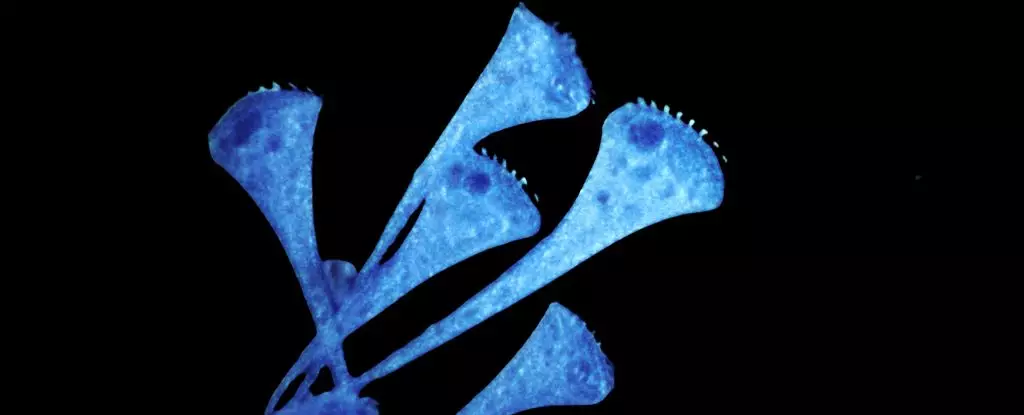Recent studies in cellular biology have illuminated a remarkable phenomenon: cells, even those lacking a sophisticated nervous system, exhibit a form of learning that raises profound questions about the nature of cognition and memory. Traditionally, learning has been thought of as a complex function exclusive to more advanced organisms, particularly those with brains. However, groundbreaking research is now suggesting that even the simplest unicellular organisms demonstrate a capability for habituation—a process wherein responses to repetitive stimuli diminish over time. This intriguing discovery prompts not only scientific curiosity but also challenges long-held beliefs about the capabilities of cells.
Habituation refers to the decrease in response intensity after repeated exposure to a non-harmful stimulus. This phenomenon has been well-documented in animals; for instance, creatures can become familiar with human presence in their habitat or gradually overlook persistent scents that initially drew their attention. The implications of this learning mechanism are vast, as it points to a fundamental survival adaptation, allowing organisms to conserve energy for more pertinent responses. Biologist Jeremy Gunawardena of Harvard Medical School encapsulates the intrigue surrounding this topic, stating that the challenge lies in comprehending how brainless cells manifest such complex behaviors.
At the forefront of this research are scientists from the Max Planck Institute, who have employed computer modeling to scrutinize molecular networks within mammal cells and ciliated protozoans. Their findings reveal that both types of cells exhibit a dual-response system, where the response to stimuli is not uniform but rather characterized by varying rates of attenuation. This dual response enables cells to ‘habituate’ by allowing one response to fade more slowly than another. In essence, cells can temper their reactions to repeated stimuli, only returning to previous response levels once the slower dissipating reaction has subsided.
Biologist Rosa Martinez, part of the research team, proposes that this ability might resemble a form of memory at the cellular level—a dynamic that not only governs immediate reactions but also influences future cellular behavior. Through this understanding, scientists can prioritize experiments that may lead to significant breakthroughs, saving precious time and resources in the laboratory.
The potential implications of this research stretch into the realm of medical science, particularly concerning the immune system’s ability to distinguish between normal cells and cancerous ones. If these initial findings are confirmed in live cells, they could provide crucial insights into why immune responses often fail to recognize tumors as threats. Gunawardena likens this misunderstanding to a form of ‘delusion’, suggesting that by comprehending how immune cells misinterpret their environments, scientists might be able to reprogram these cells to effectively identify and combat tumors.
This revolutionary outlook fosters hope for novel cancer treatments, where cellular memory concepts can be exploited to enhance immune responses. The research positions itself at the frontier of cellular biology, paving the way for future exploration into the intricate interplay between cellular structure and function.
As exciting as the discovery of cellular habituation might be, it is not the sole indicator of cellular adaptability and intelligence. Recent findings have indicated that cells may also learn through mechanisms of repetition. The concept of learning in organisms without centralized nervous systems sparks a cascade of questions within the scientific community and challenges traditional views that confine learning and memory to complex organisms.
As Eckert and her team point out, historical biases have colored the acknowledgment of learning in simpler life forms. This emerging body of evidence calls for a reevaluation of the cognitive capacities attributed to cellular entities, urging scientists to delve deeper into the cognitive capabilities of the biological world.
The capacity for learning among individual cells redefines what we consider intelligence and adaptation in the biological realm. As researchers explore these fascinating dimensions of cellular behavior, the potential for utilizing this knowledge in advancing medical science remains expansive. Moving forward, a greater understanding of cellular habituation and memory could lead us to innovative strategies in combating diseases and improving our grasp of life itself. The quest to unlock the secrets of cellular learning is just beginning, and it promises a new era of discovery in biological sciences.

